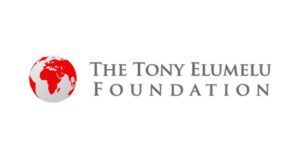TotalEnergies wins in court over civil rights criticism on EACOP project
TotalEnergies a French energy giant has escaped another legal hurdle after censure of its East African crude oil pipeline in a French court was stepped down over a series of technicalities, Climate Change News reported.
A group of French and Ugandan campaigners argued in court that TotalEnergies did not do enough to stop environmental and human rights problems in its East Africa Crude Oil Pipeline (Eacop) and the associated Tilenga oilfield.
They asked the court to order the company’s vigilance plan, meant to address issues like environmental risks and community displacement, to be rewritten.
But judges decided they did not have the power to conduct the in-depth examination neccessary and said the campaigners’ legal case had changed too much since they first filed.
The favourable judgment is coming after previous judgment past by European Union (ACP-EU) Joint Parliamentary Assembly sitting in Maputo City, Mozambique on November 2ND which voted to let Uganda proceed with implementing the East African Crude Oil Pipeline Project (EACOP).
The ACP-EU resolution now waters down an earlier stance by the European Parliament that had expressed “grave concern” around alleged human rights violations in Uganda and Tanzania, linked to the Lake Albert project.
A TotalEnergies spokesperson defended its plan and highlighted the judgment’s ruling that it was “sufficiently detailed to not be considered as summary”.
But campaigners pointed out that judges did not rule on the details at the heart of the case. They denied their case had significantly changed and said they were considering an appeal.
Dickens Kamugisha, director of the Africa Institute for Energy Governance (Afiego), described the decision as a “huge disappointment for the associations and communities affected in Uganda and Tanzania who had placed their hopes in French justice”.
This requires all large businesses headquartered in France and international corporations with a significant presence there to set out clear measures to prevent human rights violations and environmental damage – even among their subsidiaries.
Huge pipeline
In 2021, Total signed an agreement with Uganda and Tanzania to start building the $3.5 billion, 1,443-kilometre pipeline alongside the state-owned China National Offshore Oil Corporation and Uganda National Oil Company. It will transport crude oil from the Tilenga oilfields being developed in north-western Uganda to a Tanzanian port on the Indian Ocean.
The project has proved hugely controversial for its contribution to climate change and the impacts on people living along its path.
Research by the US-based Climate Accountability Institute concluded it would emit 379 million tonnes of carbon over its 25-year lifespan – much more than laid out in the project’s environmental impact statements, which only account for the pipeline’s direct construction and operation.
In a resolution last year, the European Parliament expressed “grave concern” about alleged human rights violations in Uganda and Tanzania, linked to the project. And Ugandan protestors concerned about its impact on the local environment, displacement of communities and the lack of benefits accruing to Uganda have accused police of brutality towards them.
Campaigners have put huge pressure on financial institutions and insurers not to support EACOP for environmental and human rights reasons, and many have publicly distanced themselves from the project.
But with both the Ugandan and Tanzanian governments have given formal construction approval in the last few months, work on the pipeline is now expected to progress.
Recently in early 2022, the Lake Albert Development Project partners announced the final investment decision and the launch of this major project. The disclosure was made during a ceremony held in Kampala, in the presence of Yoweri Museveni, President of the Republic of Uganda, Philip Mpango, Vice-President of the United Republic of Tanzania, Patrick Pouyanné, Chairman and CEO of TotalEnergies, and representatives of the China National Offshore Oil Corporation (CNOOC), the Uganda National Oil Company (UNOC) and the Tanzania Petroleum Development Corporation (TPDC). The total cost of the project is representing a total investment portfolio of approximately $10 billion.
The Lake Albert development encompasses the Tilenga and Kingfisher upstream oil projects in Uganda and the construction of the East African Crude Oil Pipeline (EACOP) in Uganda and Tanzania. The Tilenga project, operated by TotalEnergies, and the Kingfisher project is operated by CNOOC, both project are expected to start producing in 2025 and are expected to peak a cumulative plateau production of 230,000 barrels per day. The upstream partners are TotalEnergies (56.67%), CNOOC (28.33%) and UNOC (15%). Production from the oil fields in Uganda will be transported to the port of Tanga in Tanzania through the EACOP cross-border pipeline, whose shareholders are TotalEnergies (62%), UNOC (15%), TPDC (15%) and CNOOC (8%).
Uganda’s president Yoweri Museveni has accused Western critics of the project of hypocrisy because only a handful of nations have committed to ending their own fossil fuel production.
Other EACOP lawsuits are still pending. One was filed by Afiego in Uganda against the country’s environmental and petroleum authorities for approving Tilenga’s environmental and social impact assessment. And another brought by civil society organisations from Uganda and Tanzania is at the East African Court of Justice, although this has been bogged down by jurisdictional arguments.




